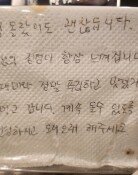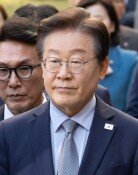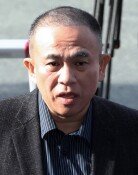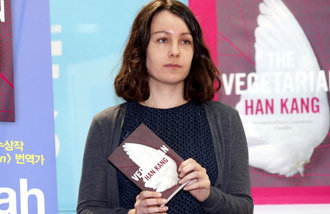National Assembly must fill vacancies in major state institutions
National Assembly must fill vacancies in major state institutions
Posted November. 19, 2024 07:42,
Updated November. 19, 2024 07:42
National Assembly Speaker Woo Won-shik, Choo Kyung-ho, floor leader of the People Power Party, and Park Chan-dae, floor leader of the Democratic Party of Korea, met on Monday and agreed to recommend candidates for three vacant Constitutional Court judge positions by the 22nd. The ruling party suggested that “the process of recommending an Independent Inspector General should also be initiated.” Still, the opposition responded, “If this process is aligned with the refusal to investigate Kim Keon Hee through a special prosecutor, it requires an in-depth review.” The Democratic Party also emphasized that the vacant seats at the Korea Communications Commission and the Korea Communications Standards Commission should be filled quickly.
Only six of the nine justices of the Constitutional Court remain, as no replacements have been appointed since the retirement of three members, including Chief Justice Lee Jong-seok, on October 17. The three seats are to be filled by presidential appointment after being elected by the National Assembly. Still, the nominations have been delayed as the ruling and opposition parties continue to dispute how many nominations each should make. No consensus was reached at Monday’s meeting either.
Without the seats being filled, the Constitutional Court is at risk of having its legitimacy challenged if it makes major decisions that require the affirmative vote of at least six justices, such as declaring a law unconstitutional or impeaching a president. As a result, the Constitutional Court has been unable to make any major decisions this month or last month, effectively paralyzing its core functions. The situation has become so dire that one judge remarked at the National Assembly, “What the National Assembly is saying is that the Constitutional Court shouldn't work.”
The Korea Communications Commission, which operates based on a consensus of five standing commissioners, including the chairperson and vice chairperson, has been functioning as a two-member system since August last year. After the terms of three members appointed by the National Assembly expired, disagreements between the government, the ruling party, and the opposition delayed the nomination and appointment of their successors. In addition to court rulings that do not recognize the validity of decisions made by the two-member system within the KCC, the chairperson's work has also been halted due to impeachment proceedings initiated by the National Assembly, rendering the KCC effectively paralyzed. As a result, decisions on issues in the broadcasting and telecommunications sectors, such as imposing fines on Google and Apple for forcing in-app payments, have been delayed. The Korea Communications Standards Commission is also facing challenges, with six of its nine members that should be recommended by the National Assembly still vacant.
The Independent Inspector General post has been unfilled for more than eight years, ever since former Independent Inspector General Lee Seok-soo resigned in September 2016. The law requires the National Assembly to nominate and the president to appoint an Independent Inspector General within 30 days of a vacancy, but the position has remained vacant due to conflicting interests between the ruling and opposition parties. Regardless of the reasons, the National Assembly has not fulfilled its role, resulting in disruptions to the work of state institutions. The ruling and opposition parties must demonstrate political power and fill the vacancies as soon as possible so that these agencies can function effectively.
Headline News
- Biden authorizes Ukraine to use long-range missiles against N. Korea's troop deployment
- Democratic Party criticizes court in charge of Lee’s case for ‘judicial murder’
- Jannik Sinner achieves remarkable success on tennis court
- Xi Jinping asks Yoon to visit China first
- Chey Tae-won appointed as chair of APEC CEO Summit







